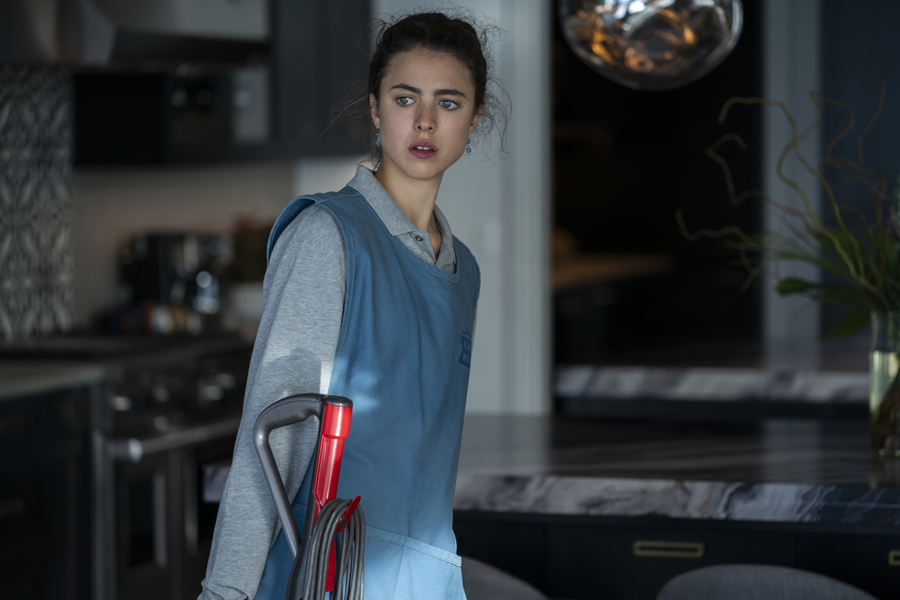FCC‘s Lifeline Gets Bit Part in Netflix's ‘Maid’
Low-income telecom subsidy is one of many main government assistance programs character must navigate

The smarter way to stay on top of the multichannel video marketplace. Sign up below.
You are now subscribed
Your newsletter sign-up was successful
The Federal Communications Commission‘s Lifeline low-income advanced communications subsidy program gets a shout-out, sort of, in the new Netflix series, Maid.
The limited series (created by screenwriter Molly Smith Metzler) from Stephanie Land‘s memoir, Maid: Hard Work, Low Pay, and a Mother‘s Will to Survive, has drawn critical praise since its Oct. 1 premiere for its gritty portrayal of life on the margins for an abused single mother and her daughter.
In a later episode, during a stay at a domestic violence shelter, single mom Alex Russell (Margaret Qualley) is given a new refurbished phone. The head of the shelter, Denise (BJ Harrison) advises Alex: “The FCC has a a lifeline program for discounted phone service for people in emergency shelters.”
The “sort of” aspect of the plug is because one of the show's central themes is how tough it is to navigate the government programs meant to help victims of domestic abuse get back on their feet and keep away from their abusers. Denise also advises Alex, “Like all things run by the government, there is a lot of red tape.”
The scene cuts to Alex‘s laptop with an FCC Lifeline program home screen, followed by a cut-away and the sound of typing, signaling she has, once again, begun the process of navigating that red tape, as she has had to do with housing and food assistance and other programs.
The show‘s promotion of the program, the emphasis on red tape notwithstanding, dovetails with the FCC's effort to get the word out about the assistance.
Back in September, during ”Lifeline Awareness Week,“ Rosenworcel talked in a brief YouTube video about the use of the Lifeline program for, among other things, helping victims of domestic abuse.
Phones are actually more often a malevolent character in the stories of domestic violence since abusers have been known to track their victims using cell phone location information. In the show, the shelter's policy is not to let anyone use the phone on the premises, only outside on the street so the location of the shelter cannot be pinpointed.
The potential for domestic abusers to get phone information was one of the reasons Rosenworcel pushed for more information back in 2019 about carriers' sale of real-time geographic location data to third parties, including bounty hunters.
And the same month Maid premiered, the Federal Trade Commission released a report concluding that ISPs are collecting and sharing more data about their customers than those customers are aware of, including internet traffic and real-time location data. ■
The smarter way to stay on top of the multichannel video marketplace. Sign up below.
Contributing editor John Eggerton has been an editor and/or writer on media regulation, legislation and policy for over four decades, including covering the FCC, FTC, Congress, the major media trade associations, and the federal courts. In addition to Multichannel News and Broadcasting + Cable, his work has appeared in Radio World, TV Technology, TV Fax, This Week in Consumer Electronics, Variety and the Encyclopedia Britannica.

